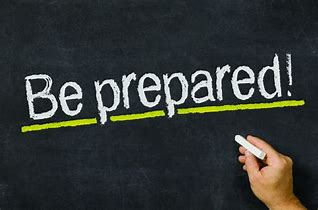Buying a Pre-Sale Condo or Home?
What you need to know about Buying a Presale/Prebuild/Pre-construction in BC.

What is a Presale?
A pre-sale or a pre-construction sale is where a developer sells homes in a development before construction has begun or while the development is under construction.
Important facts about presale condos
- The presale condominium market is governed by the Real Estate Development Marketing Act in BC which protects the Buyer.
- There is a 7-day rescission period from the day of an accepted contract to purchase. During this time the buyer can do their due diligence on their purchase.
- The developer must provide the buyer with all the Disclosure Statements. The Disclosures will contain all the important information on the development. It is very important to carefully read this information.
- BC provincial law - if the buyer wants to cancel the contract to purchase during the 7-day rescission period they can do so without any costs.
- Disclosure Statement information link.
- With Presales, there is a deposit structure.
- The most common deposit structure is 5% of the purchase price at the time of acceptance of the contract to purchase. This is followed by two or three more payments of 5% over a predetermined period of time while the home is being built.
- The total deposit typically will be 15% or 20% of the purchase price. The deposit is placed in a lawyer’s trust account and cannot be accessed by the developer.
- If the developer does not complete construction or the developer files for bankruptcy, the deposit will be returned to the buyer.
- Presale condos and houses under $750,000 are exempt from Property Purchase Tax (PPT).
- To qualify the buyer must be a Canadian Citizen or a permanent resident and living in the house for one year (link).
- First time buyers are exempt from PPT when purchasing a home under $500,000 with a slight rebate up to $525,000.
- PPT is 1% on the first $200,000 and 2% on the balance up to $2,000,000. The PPT is 3% on amounts greater than $2,000,000 (more PPT details).
Pros of buying a presale home
In a hot real estate market, buying a pre-sale home can be easier than competing against multiple offers. This is because there are many units for sale in the building at one time, and you are negotiating with one sales representative.
- Purchasing a new home that no one has lived in will be in excellent shape, you don’t have to deal with other people’s dirt. Nothing to upgrade or renovate, minimal repairs needed.
- None (or very few) strata restrictions at time of ownership (i.e. rentals or pets).
- New condos built by reputable developers tend to have lower maintenance costs due to less upkeep required since the building is brand new… i.e. it could take 20-30 years before you need a new roof.
- There is a warranty protection on presales– British Columbia 2 -5-10 year Warranty Insurance BC Housing – Home Warranty Insurance on New Homes.
- The warranty starts once the developer gets the occupancy permit.
- You may have months or even years to get your mortgage financing in order.
- There are no mortgage payments from the time of purchasing the presale to the development’s completion (certificate of occupancy). This period can be anywhere from 1 to 5 years.
- Many buyers continue to save money while renting or living at home
- Buyers may see an increase with their wages while waiting for the presale to complete
- If the economy is strong, you build your equity when the property prices increase.
- For rentals, a newly constructed home will typically achieve higher rental price.

Cons of buying a presale home?
- GST (currently 5%) is paid on the purchase price, and due when the development is finished (certificate of occupancy has been provided to the developer).
- GST can be rolled into your mortgage.
- New is more expensive than used. A new building will not require significant maintenance for 10 to 20 years. You will pay more for a new home than you would for a 5, 25 or 50 year-old home.
- Market Value What will be the market value of the unit by the time it is ready to be occupied?
- No one can predict what the price of a property will be 1 to 5 years from now.
- A pre-sale agreement is essentially a ‘futures contract’ (i.e. a commitment to buy something in the future) with an uncertain delivery date.
- While the price paid to the developer is guaranteed, the buyer does not receive a guarantee that the market value of the home they purchased will be equal to or higher than the pre-agreed purchase price.
- As a result, the buyer carries the risk of any market fluctuations and absorbs the losses if the market value goes down (however they capture gains if the housing market rises).
- Interest Rates Nobody knows what variable or fixed mortgage rates will be 1 to 5 years from now. They could be lower or higher. From 2021 to 2022 interest rates went up around 3%.
- While your homeownership budget may work when you calculate it at today’s mortgage rates, does it still work if rates rise by 1, 2, 3, 4 or 5% by the time the home completes?
- Financing While a home buyer may qualify for a mortgage today there are a few ways they may not be qualified when the purchase closing date arrives:
- The interest rates have gone up OR mortgage qualification rules have changed, and you no longer qualify for a mortgage according to bank’s lending guidelines.
- The property market value has dropped below the pre-agreed purchase price, and the bank only lends you money based on the current market value.
- The home buyer may need to make up the difference with a larger down payment.
- You may have had a change of employment, be laid-off or had your hours reduced since you were initially pre-approved for a mortgage, so you no longer qualify.
- If completion date comes and you can’t qualify for a mortgage – will the developer allow you to Assign your purchase (sell before you take possession)
- If YES how much will the developer charge for an assignment?
- Completion Date is a moving target with any pre-sale contract. Most contracts provide an estimated completion date which is generally 1-5 years away. However, the contract will stipulate that the date is subject to change by the developer by a significant amount of time.
- Therefore, the developer may extend the closing date many times up to a specified “outside completion date” which may be several years past the original estimated closing date. The developer may be within its rights to extend the closing years beyond the date the purchaser may have planned for.
- In the meantime, the purchaser is on the hook to buy the unit for what may feel like an indefinite period of time (and their cash tied up with the deposit on the unit).
- In contrast, when the developer is finally ready to complete, the contract provides for a short closing period (usually 7-10 days) within which the purchaser must be ready to close or face being in breach of contract.
- Imbalance in Legal Consequences. When it’s time to close on a purchase, the buyer is obliged to follow through on the agreement. If a buyer fails to close without a valid legal reason, they will forfeit their deposit, and the developer has the right to pursue further damages.
- On the other hand, if the developer fails to close, they return the deposit funds to the buyer. There are no other legal consequences for the developer.
- Purchasing a condo from a floor plan requires vision and experience.
- In the Disclosure Statement, the developer is allowed to make small variances to the floor plan during construction if required.

Recommendations:
- Always have your own realtor represent you when you buy any home (let me know if you need an introduction to realtors I know, like & trust).
- The developer will pay the realtor a pre-arranged commission for bringing in a buyer (so your realtor gets paid, and the buyer gets independent representation).
- After you sign a pre-sale agreement, bring the contract to your lawyer for review immediately. You are allowed 7 days to rescission your offer. If you change your mind after reviewing all the documents in detail with your lawyer, you can cancel the contract within this period.
- The bottom line is you need to weigh the risk and potential reward of buying a home before it is built and are well advised to investigate that developer’s business practices and track record as thoroughly as possible.
The best way to determine if purchasing a home presale is the best option for you is to weigh the pros and cons with your mortgage specialist (me!!) and real estate professional who specializes in presale development.
Let’s have a chat to help you determine if buying a Pre-Sale home is right choice for your situation.
Mortgages are complicated, but they don’t have to be… Engage an expert!
Kelly Hudson
Mortgage Broker
Mortgage Architects
Mobile: 604-312-5009
Kelly@KellyHudsonMortgages.com
www.KellyHudsonMortgages.com






